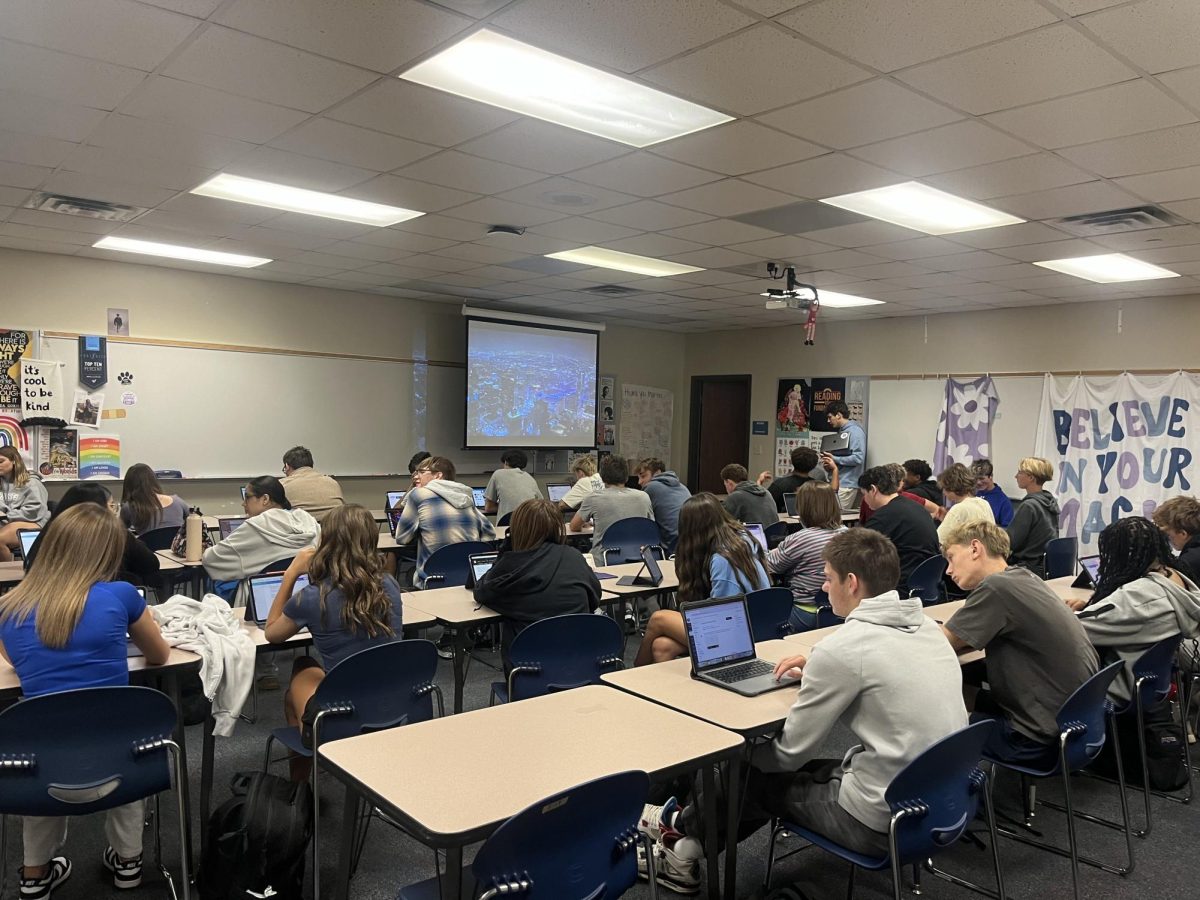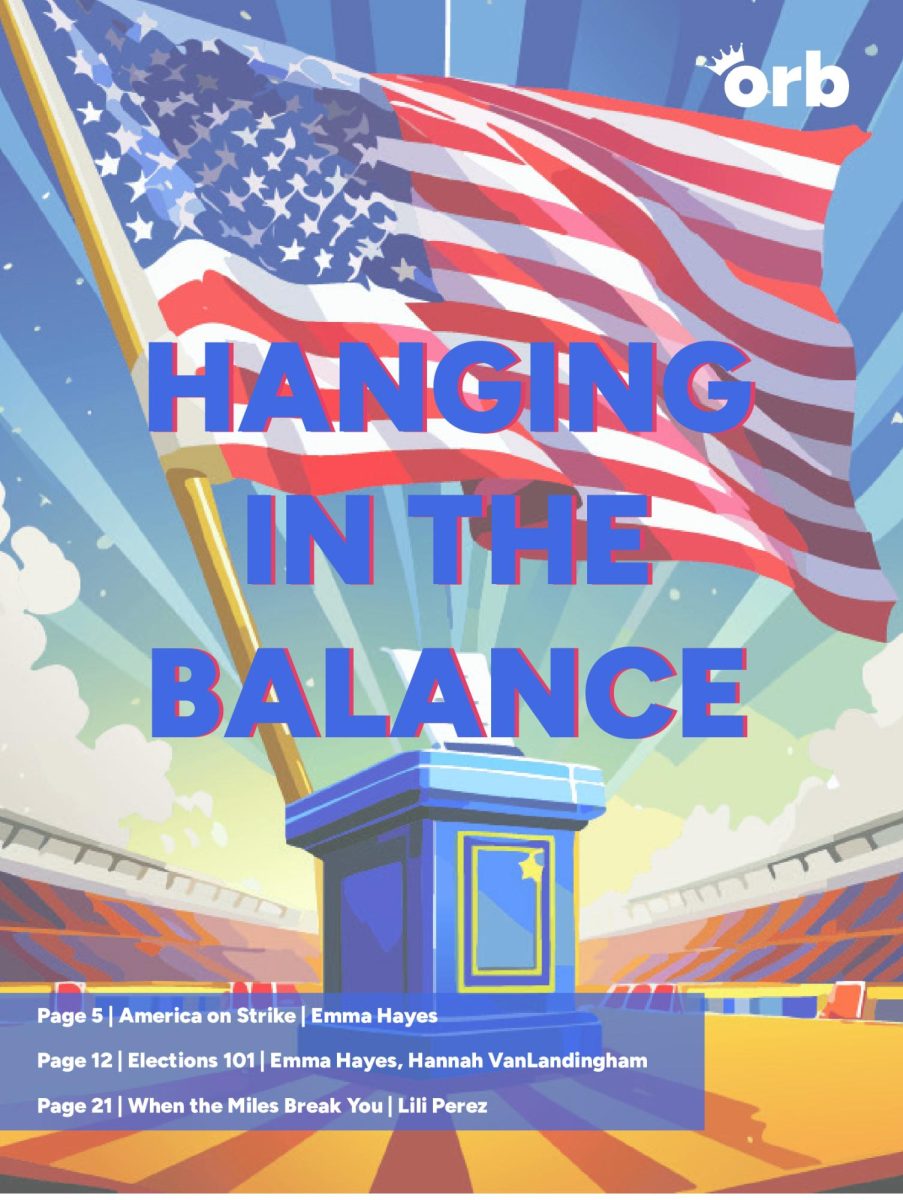AI Invasion
March 22, 2023
COMMENCEMENT
In the last year, science has made incredible advances regarding many facets, perhaps the most important being artificial intelligence. AI has become a major talking point in the public discourse, and for good reason. Contrary to popular belief, AI is not a new invention. In 1956, scientist John McCarthy became the first person to use the phrase ‘artificial intelligence’. Like most advancements, AI’s progress started out slow. While advancements seemed few and far between, there were certainly breakthroughs such as the “Deep Blue”, which was a supercomputer that beat one of the best chess players in the world in 1997. In the following 20 years, AI progressed rapidly. Advancements ranging from the invention of Siri to the introduction of Amazon Alexa’s and Google Home, AI has has become more advanced and more sophisticated and future advancements will likely shape the world over the next few decades. The question whether this is good or bad is often up to interpretation.
With the breakthrough introduction of ChatGPT, the ethics of AI have been questioned. Whether or not an AI such as ChatGPT is engaging in plagiarism continues to be up for debate, along with whether the product that is created is the intellectual property of the user or ChatGPT’s. Even larger morally gray areas have been created with the rise of deepfake technology and voice changing AI. Each can replicate, and to some degree, even replace, the faces and voices of actors, politicians and musicians. AI has the capability for good, but it seems that the user is often the one who calls the shots. The rise of AI has only been expedited by the fact that AI is now profitable, meaning that large tech companies such as Microsoft and Google have begun to make massive investments in AI. This story will chronicle how AI will mold three specifics fields: education, jobs and healthcare.
AI IN HEALTHCARE
An industry that has been fluctuating throughout the introduction of new technologies, medicine will develop even more by the implementation of artificial intelligence in hospitals, surgery, diagnoses and countless other areas. Even before the recent expansion of AI in society, it was used during the COVID-19 pandemic in order to find major breakouts of the virus and identify those at risk for it. With this operation proving successful, those in both the medical and AI fields have been searching for ways to further incorporate AI into the world of healthcare. Doctors have high hopes for the technology, with ideas about improving the state of current public health already being put into motion. Greg Smith, a medical professional who works at the medical device company Medtronic, gave his expert analysis on this issue.
“Using AI could have benefits in health care in looking at predicting things that may happen, which could be a great thing,” Smith said. “However, as with any new technology, there are risks that have to be considered. Wrong assumptions could be as bad or worse as any condition or scenario it predicts if wrong.”
This issue is apparent in the most popular use of AI technology in health care: the improvements to diagnoses and the creation of personal treatment plans for patients. AI has the power to correctly show trends in data that help doctors identify warning signs for health conditions. AI being able to see these warning signs early has already helped to diagnose many patients. Personal treatment plans have also been developed by AI technologies, with programs surveying information about patients’ genetics, past illnesses and family history in order to warn of present or future health conditions. These personal treatment plans, similar to information found in popular DNA tests, help patients be aware of future ailments, whether that be taking steps to prevent it or simply preparing for it. However, as Smith said, AI is not always more reliable or efficient than real, human doctors.
“There is still a lot of things we don’t know, as well as programming bias that can be put into the technology to possibly make [good] decisions,” Smith said. “But [they] may not be totally correct or in the best interest of the patient.”
The world of health care is already improving, but there are many more positive changes to come. Doctors hope that future AI will have the power to more accurately diagnose patients based on basic data and tests, although the technology is nowhere near that point yet. AI in health care is already making waves and adjusting with the tides of this new, developing technology.
AI IN EDUCATION
Digital technology has been impacting education since the incorporation of computers and online resources in schools. Within just the past few decades, technology has impacted the way students learn, complete assignments and even attend school. A similar wave is expected with the recent rise of artificial intelligence. For some, this is seen as an opportunity; for others, only an opportunity for students to cheat or not learn properly. With the emergence of chatbots like ChatGPT, the fear of plagiarism in schools has only increased. Using these chatbots, students can easily fake essays or answers through the writing-generation program, a concept that has been anticipated by most schools. Many of them have blocked access to ChatGPT for students while others have attempted to turn it into a teaching tool. Teachers have incorporated these chatbots into their lesson plans, saying that when used correctly, it can sharpen students’ minds when it comes to the usage of AI or evaluating writing. To most, though, chatbots and similar AI are only seen as means for students to skip the work while still getting the grade. As ChatGPT and others develop and grow, the world of education is sure to see a shift in learning and teaching. However, more than just chatbots are expected to impact education.
With new AI in schools, accessibility for students is increased. Some AI programs make lessons easier to understand for non-native speakers or students with learning disabilities. Others can create practice tests or problems for students to prepare for exams. Grading using AI programs eliminates existing biases in school systems that can affect students’ grades. Although AI can provide all these incredible opportunities for teachers and students, it is still in its infancy; glitches, mistakes, typos and misinformation are often scattered among the results of chatbot generated writing or the work of an AI program. AI integration into education is on the horizon, but it has a far way to come before it becomes a natural, dependable, or accessible tool for most schools.
AI IN THE WORKFORCE
AI in the workforce has both negative and positive effects. AI skeptics fear that AI is slowly taking away jobs from humans. According to Builtin, AI expected to replace 85 million jobs worldwide by 2025. Though that sounds scary, the report goes on to say that it will also create 97 million new jobs in that same timeframe.
What some people do not know is that there are some jobs that cannot be taken over by AI. Jobs in the fields of education, writing, law, social worker, medical professionals and others cannot be taken over by AI as easily. AI struggles using empathy and complex strategic planning that can only be accomplished by humans.
Based on a study by Tidio, 63% of cashier jobs are going to be replaced with AI. The study also stated that cashier and driver jobs would most likely be taken over by AI.
Companies around the world, such as database companies, say that AI will help with efficiency and getting things done faster, but it turns out that AI is less efficient than expected. AI work jobs that use math, language and computer skills, while humans work jobs that require empathy, communication and interaction.
There is also a downside for AI workers because of security risks when using AI. Using AI in important jobs can create security risks for businesses that are using Ai because people are beginning to use AI technology for malicious purposes. AI could also be a downside because of inequality in the already existing economic inequality. AI technology affects the economic inequality with how wealthy people with access of the best resources have the benefit of using AI.
AI will drastically change how businesses design their workplaces and companies. Companies will use AI like online labor platforms as an example. The platforms will make it so companies can choose the jobs that they take, how they will carry out the jobs and the rates they will charge for the work. AI is used everywhere in jobs, and will not just take jobs in the future, but will help humans in workplaces.
CONCLUSION
While it seems artificial intelligence will dominate the coming years, it can be argued that it is already shaping society and the world as a whole. For example, the third most popular free app on the Apple app store is TikTok, a social media platform predicated on short- form content. This same trend is supported by the fact that 70% of teens use TikTok. Perhaps what is more relevant is how TikTok supplies its videos to its users. TikTok uses an algorithm fueled by AI and AI applications such as machine learning to predictively recommend videos to its users. The thing that separates TikTok’s AI from other algorithms however, is its effectiveness and quality.
“And for many users, who consume without creating, the app is shockingly good at reading your preferences and steering you to one of its many ‘sides,’” New York Times writer Ben Smith said. “Whether you’re interested in socialism or Excel tips…or a specific celebrity.”
The ability of TikTok to know a person’s likes and dislikes, showcases something important about AI: it may already be smarter and more advanced than anyone realizes. AI has allowed scientists to invent robot bees, a solution to a problem plaguing America’s farmers. AI such as International Business Machines’ Watson can write songs, and did so in 2017 as Alex Da Kid used Watson to help write and create a hit song. AI has completely revolutionized the way that humans go about their lives, and it is right under their nose. There should no longer be any concern over whether AI will take over the world, because it already has.





















